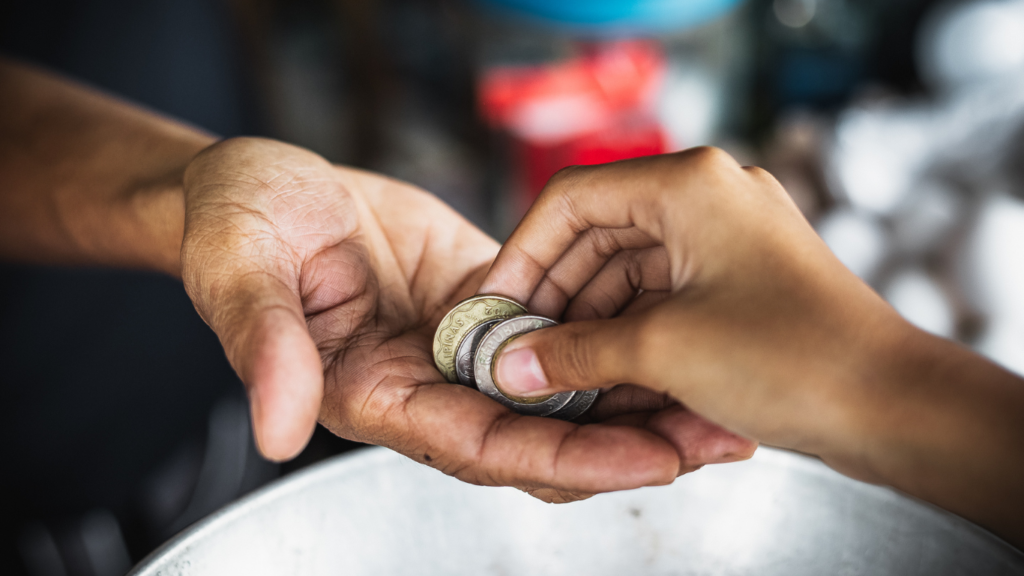In today’s ever-evolving consumer landscape, the age-old debate between indulging in luxury goods versus investing in memorable experiences has taken center stage. As a seasoned observer of global spending trends, I’ve witnessed a notable shift in priorities among consumers worldwide.
While luxury goods have long been symbols of status and sophistication, there’s a growing inclination towards seeking enriching experiences that create lasting memories. As I delve into the dynamic realm of luxury goods and experiential spending, it’s evident that modern consumers are placing greater value on moments that resonate with their aspirations and values.
The allure of luxury goods still holds a significant place in the hearts of many, but the trend towards prioritizing experiences speaks volumes about a shift towards a more fulfilling and meaningful way of living. Join me as we explore the changing landscape of consumer preferences and delve into the motivations driving this shift in global spending patterns.
Evolution of Consumer Preferences
Reflecting on the evolution of consumer preferences reveals a notable shift towards experiences over material possessions. Consumers are increasingly prioritizing moments that align with their values and aspirations. This shift signifies a move towards a more meaningful and fulfilling lifestyle.
Consumers now seek enriching experiences that create lasting memories, valuing personalized adventures and unique journeys over conventional luxury goods. The focus is on creating connections and emotions through experiences that resonate with individual identities and preferences.
This transition in consumer behavior underscores a desire for authenticity and self-expression. As a result, the significance of experiences in shaping personal narratives and fostering deeper connections with oneself and others has become paramount in the modern consumer landscape.
The evolution of consumer preferences towards experiences signifies a broader cultural change towards a more experiential and value-driven approach to consumption. This shift highlights the importance of understanding the motivations behind consumer behavior and adapting to meet changing needs and desires effectively.
The Rise of Experiential Spending
- Shift Towards Experiential Spending: Consumers prioritize creating memories through experiences over acquiring material possessions.
- Desire for Meaningful Encounters: There is a growing trend to seek enriching and meaningful experiences that align with personal values and aspirations.
Trend towards Experiences
In today’s world, there is a clear trend towards favoring experiences over material goods. Consumers are increasingly inclined to invest in activities such as travel, recreational outings, and educational events that contribute to their personal growth and well-being.
This shift signifies a desire for fulfillment beyond the temporary satisfaction derived from owning tangible items, emphasizing the intrinsic value of creating lasting memories through unique experiences.
Importance of Memories over Material Possessions
The importance of memories over material possessions is becoming increasingly evident in consumer behavior. People are recognizing that the true worth of their expenditures lies in the memories and emotions generated by engaging in memorable experiences.
Unlike material goods that may depreciate in value over time, memories from experiences tend to appreciate and become more cherished as they shape individuals’ personal narratives and enhance their overall quality of life.
Luxury Goods Market Landscape
The luxury goods market landscape has undergone significant shifts in recent years due to changing consumer preferences towards experiential spending. Here are key aspects to consider:
Traditional Luxury Market
In the traditional luxury market, consumers have historically favored high-end material possessions such as designer clothing, luxury accessories, and exclusive items. These goods are often associated with status, quality, and craftsmanship, appealing to individuals seeking prestige and social recognition.
However, with the evolving consumer mindset placing more emphasis on experiences, traditional luxury brands are facing challenges in catering to these changing preferences. Consumers are now seeking deeper emotional connections and personal fulfillment rather than just owning expensive goods.
Digital Influences on Consumer Behavior
In today’s interconnected world, digital platforms play a crucial role in shaping consumer behavior. Online channels have revolutionized the way individuals discover, evaluate, and purchase goods and experiences. As a consumer myself, I understand the significant impact of digital influences on our decision-making processes.
Social media platforms, such as Instagram, Facebook, and TikTok, have become powerful tools for brands to showcase their luxury goods and unique experiences. These platforms allow consumers to visually connect with products and services, influencing their preferences and purchasing decisions.
As consumers scroll through their feeds, they encounter aspirational content that drives desire and shapes their perceptions of what constitutes luxury and fulfillment. Moreover, online reviews and recommendations influence consumer trust and loyalty.
Before making a purchase, I often rely on reviews from other consumers to gauge the quality and credibility of a product or experience. Positive reviews can reinforce my decision to invest in a luxury item or experiential activity, highlighting the importance of online feedback in shaping consumer behavior.
Furthermore, digital marketing strategies, including targeted ads, personalized recommendations, and influencer partnerships, play a pivotal role in engaging consumers and driving sales. Through data analytics and consumer profiling, businesses can tailor their marketing efforts to resonate with specific target audiences, maximizing their reach and impact.
Overall, the digital landscape has transformed how consumers interact with luxury goods and experiences, providing unprecedented access to information, personalized content, and social validation. As I navigate this digital ecosystem, I recognize the profound influence it has on my preferences, perceptions, and consumption patterns.
Embracing these digital influences is essential for businesses looking to connect with modern consumers and adapt to the evolving landscape of experiential spending.
Impact on Retail Industry
Influencers like social media, online reviews, and digital marketing play a crucial role in shaping consumer behavior towards luxury goods and experiences. The retail industry is experiencing a significant impact due to the shift in consumer priorities. Businesses must adapt to these changes to effectively engage with modern consumers.
Luxury brands are facing challenges in meeting the evolving demands of consumers who now prioritize experiences over material possessions. As a result, the retail landscape is witnessing a transformation where businesses need to focus on creating memorable experiences that resonate with customers.
Digital platforms have become key drivers in influencing consumer preferences and purchasing decisions. Brands need to leverage these platforms to build trust, engage with consumers, and stay relevant in a digitally connected world.
Online presence and digital marketing strategies are essential for retailers to connect with their target audience effectively. The retail industry must embrace the changes brought about by the shift towards experiential spending.
By understanding and adapting to consumer preferences, businesses can thrive in an evolving market where experiences hold more value than material possessions.





